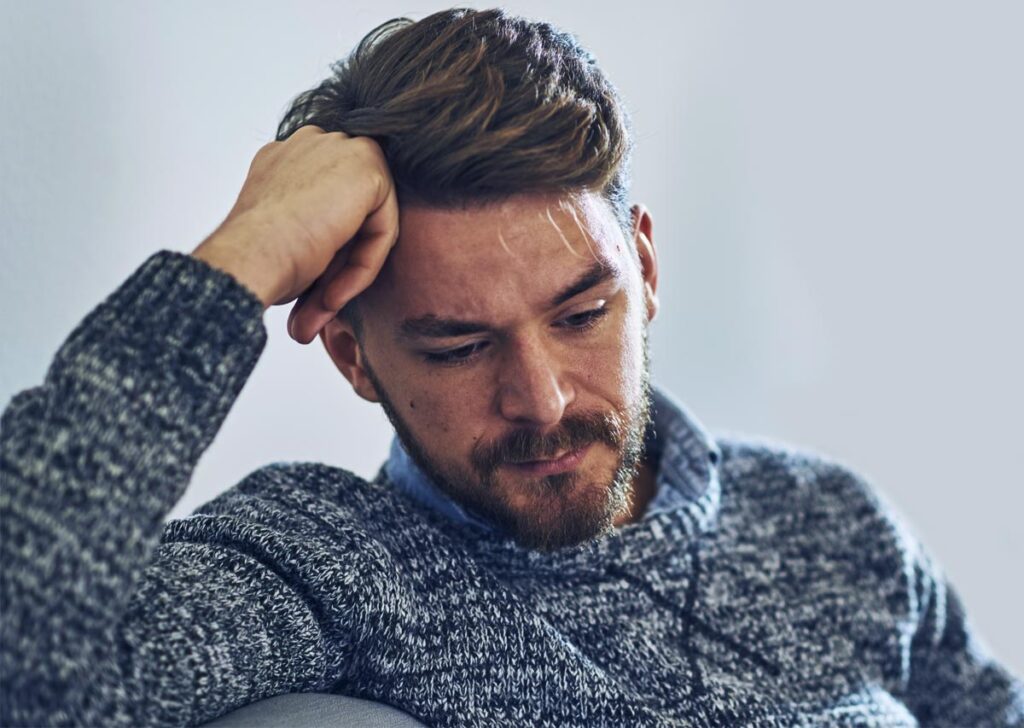
Addiction, medically known as a substance use disorder, is a behavioral disorder composed of a series of seeking and usage behaviors in which the user has lost control of themselves. In 2020, the National Survey on Drug Use and Health estimated that 40.3 million Americans met the qualification, with 18.4 million Americans struggling with an illicit drug use disorder. Drug use is shockingly common in the United States, and in 2020, an estimated 59.3 million people used at least once. Of those, 6.6% of the population is addicted.
In short, both drug abuse and addiction are extremely common. If you’re struggling with controlling how much you use, when you use, or quitting, you’re not alone. But, it is important to step back, assess your usage, and decide if you do need help.
Often, the answer is that if you’re using illicit drugs, it’s better to stop. If you’re concerned, it’s always a good idea to talk to a mental or medical health professional. This article will go over many of the early signs of drug addiction, but an assessment by your doctor will give you clearer third party views based on your physical condition, mental health, and behavior.
Symptoms of Addiction
Symptoms of addiction can vary significantly from person to person. Therefore, it’s important to assess symptoms as indicators rather than “you have to have this to be addicted”. You might have some symptoms from the list, you might have them show up in different ways, and you might have different use patterns than the examples. People are different and their responses to drug and alcohol addiction are different.
Taking Prescriptions Outside of the Prescription – Many people feel safe using prescription drugs however they can, but often, that results in abuse and addiction. For example, if you take more of a prescription medication than prescribed and on a regular basis, it’s a good indicator of addiction. That applies whether you’re taking it on more days than you should have to (e.g., with an opioid for pain or with a benzodiazepine for anxiety), if you always run out early, if you doctor shop and get prescriptions from multiple doctors, if you use other drugs or alcohol with your prescription, if you take medication outside of prescription recommendations, etc. You should also be concerned if you use preventively (e.g., I will have a panic attack if I don’t take Xanax, so I will take Xanax so I don’t have a panic attack), if you use your prescription medication to destress, constantly think about using, panic if you don’t have your prescription, etc. These are all symptoms of having a problematic relationship with your medication.
Binging – Someone with a healthy relationship with drugs and alcohol will occasionally binge on those substances. But, if you find yourself drinking to much or using so much you have memory problems or black out or are so intoxicated you find yourself losing control or vomiting, you have a problematic relationship with that substance. While it does not necessarily indicate you are addicted, it does mean you are exposing yourself to that substance at a rate that is very likely to result in addiction.
Tolerance – If you keep having to use or drink more to maintain the desired effect of drugs or alcohol, it means you’re using too much and too often. This is especially common when self-medicating with either alcohol or with prescription medication. You use to reduce stress or to feel good, eventually find that your dose no longer has the same effect and take more. That pattern keeps escalating until eventually your usage is out of control. While increased tolerance doesn’t mean addiction, it is a sign of increased vulnerability.
Ready to Start A New Life?
Our hands-on approach, compassionate staff, and home-like environment are here for you. Call us today.
Loss of Control – If you start using and intend to have a beer or a smoke and end your night having had much more, you’re not in control. That also holds true if you find yourself using during the day, at work, before driving, etc., despite your intentions. At any point where you consistently cannot maintain expectations around drug or alcohol use, you have a behavioral problem and likely an addiction. People who are not addicted to drugs and alcohol are in full control of how much they use, when they use, and why they use.
Obsession – The more you think about the drugs or alcohol you use, the more likely it is to be a problem. If you spend a lot of time and energy thinking about using, fantasizing about drinking or being drunk, or putting in extra effort so you can use or drink outside of safety requirements, it likely means you have a problem. That can translate into spending your time thinking about when you’ll get to be drunk, showing up at parties just to drink, skipping events to use, skipping meals to drink, spending money for necessities on drugs or alcohol, etc.

Inability to Quit – If you’ve tried and failed to quit your substance, it’s a good sign that you have an addiction. That’s even true if you think you have valid reasons for starting again, like stress, sudden mental illness episodes, traumatic events in your life, etc., you shouldn’t need drugs or alcohol to cope and if you do, it often means you have a problem. People with a healthy relationship with drugs and alcohol can put them down whenever they want.
DSM-5 Symptoms of Addiction
If you’re concerned, you can also look at the diagnostic criteria for substance use disorder. The most common are those outlined by the DSM-5. Here, you qualify for a substance use disorder if you meet two or more of these points over the last 12 months.
- You take a drug in larger amounts or over a longer period than intended
- You have been unsuccessful in cutting down or controlling how much you use
- You invest considerable time, energy, and effort in acquiring, obtaining, using, and recovering from substance use
- You experience cravings
- Your substance actively harms your ability to fulfil responsibilities
- Your substance use actively harms your social and interpersonal relationships
- You have prioritized substance use over social, recreational, or work activities
- You have used in situations where doing so is dangerous
- You use despite having a physical or psychological problem the substance is making worse
- You experience tolerance
- You experience withdrawal when you stop using
If you’re struggling with drug abuse, there’s no shame in it. Drug addiction is a behavioral disorder, and it can be treated. There’s no guilt or shame in acknowledging that you have a problem and getting help. Plus, with millions of Americans struggling, you are not alone. Drug addiction treatment can help you to get back on your feet by helping you to identify the underlying causes of drug use, to resolve problems in your life, to improve your mental health, and to learn the skills and behaviors that will allow you to build a healthy and happy life without drugs. While, for many of us, that process will take years, getting clean and getting started on the road to recovery is the first step to getting your life back.
Sober Solutions is a modern and effective drug and alcohol addiction treatment center located in sunny Orange County, in Southern California. We provide drug and alcohol detox services and programs for drug rehab, alcohol rehab, and dual diagnosis treatment. Contact us today to get answers from one of our experienced and compassionate treatment team.


